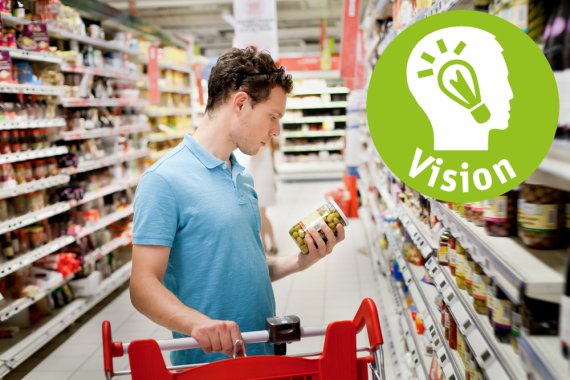© Shutterstock
When is a food label misleading?
‘Bluntly speaking, a label can be misleading when it creates expectations that are not in line with the facts. To determine whether something is misleading in the eyes of the law, the European Court of Justice takes the “average consumer” as a benchmark. As long as the information is available, consumers are expected to make their own judgement and protect their own interests.’
That doesn’t sound very realistic
. ‘Obviously this average consumer doesn’t reflect reality, as research has shown. The basic problem with the current legislation is that if you use this benchmark, it is very hard to actually mislead a consumer according to the law. But the aim isn’t so much to protect consumers as to harmonize product labelling. If stricter benchmarks are needed then Member States can create them through national legislation. In the Netherlands, for example, there are stricter rules for labelling bread as “whole grain”. But in general countries don’t make much use of the opportunity, probably because they fear that their laws might contradict with EU law.’
What do you think of the idea for additional EU regulations?
‘I think it is good to have clearer criteria for what makes labels misleading. But you should also look at the differences between countries and markets. For example, in Scandinavian countries most products are distributed through large chains and consumers are used to more protection. But in countries such as Bulgaria, products are mainly sold at local markets. Small local businesses are often not even aware of the legislation. We should consider these small businesses when we make the rules. You don’t want them being criminalized and forced to close, leaving only larger chains in business.’
You might also like:
Bonus packaging is misleading
Red packaging better for light products

